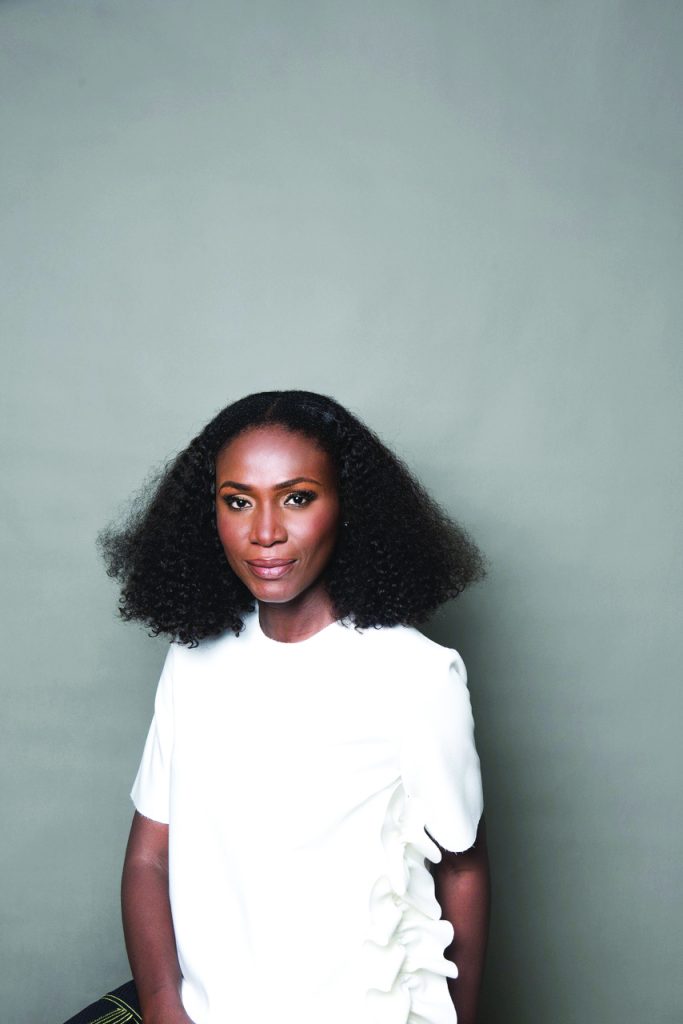Amidst a flurry of designer gowns and sexy stilettoes, the Lagos Fashion & Design Week (LFDW) is off to a ritzy start at the Federal Palace Hotel in Victoria Island, Nigeria. As is expected, it’s big on style and selfies.
Seated in the front row for the Ejiro Amos Tafiri show, high-profile personalities and celebrities sipping champagne from long-stemmed glasses soak up the glitz and glamor of an event that celebrates African fashion.
This year, 42 designers hit the runway to showcase their interpretation of what is new and chic in African fashion, and as the runway transforms itself in bright colors juxtaposed with velvet material and sheer fabric, personal shopper and fashion buyer, Mohammed Dohan, is right where he needs to be – in the front row.
“I have been coming to this event each year since it started in 2011 and the quality of designers and the types of African brands has improved dramatically. There is a great demand for authentic African pieces all over the world,” says Dohan.
Working for high-net-worth individuals and luxury boutiques in the United Arab Emirates, Dohan knows a thing or two about the latest fashion trends and LFDW is an inspirational hotspot for him.
Loading...
Like Dohan, everybody is here for a piece of the growing garments industry in Africa, and no one knows this better than the founder of LFDW, Omoyemi Akerele.
“Currently, the value of garments, apparel and leather in sub-Saharan Africa has been tapped at $30 billion by Euromonitor, so the market is huge and if Nigeria is the single-largest market in Africa due to the sheer size of the population, then we are sitting on a gold mine,” says Akerele.

“We realized that there was no fashion industry when we started and decided that there has got to be a semblance of an industry. Number two, we have talent in Nigeria, but there is no commerce backing that talent, so we had to get to a place where we asked ‘what do you want to do first? Do you want to focus on the commerce or do you want to focus on the creativity?’ Creativity seemed like a good place to start, hence fashion week.”
With a degree in Law from the University of Lagos and a master’s in International Economic Law from the University of Warwick in England, Akerele knew from an early age that she was going to follow her father’s footsteps in the legal profession.
“Law was firmly what I had my heart set on until the day I stopped. Initially I thought it was because I didn’t want to work in that particular law firm. I thought I was going to get married and go back to law with a different organization but it took being at home for me to realize I did not want that. I asked myself ‘why are you going back to something you don’t love’,” recalls Akerele.
She knew it was time to make a change.
“For you to have a career and thrive in it, it has to be something you love and that is what pushes you and makes you go beyond the extra mile to be able to give it your best. So that is what I realized was missing from my career as a lawyer.”
She began her new career as an image consultant and fashion stylist. Her first role was as contributing stylist for Truelove, however a partnership with a friend ignited her passion for the creative arts.
Her friend at the time, Bola Balogun, moved back to Nigeria, so they met and started a company together called Exclusive Styling, moving on to do styling jobs in Nigeria from Big Brother Africa to MTN Project Fame and Idols.
Soon, she was at a point where she needed to go back to the drawing board again.“I thought going back to school would do the trick, I thought doing a master’s in fashion would be the next phase so I went to three different schools which were the best in Europe and they asked for my portfolio and they asked me ‘why do you want to do a master’s, do you mean you want to teach’? They said your portfolio looks really good so half of the things we will be teaching you, you have already done in practice so this course is not for you,” says Akerele.
After some soul-searching, Akerele had her moment of clarity.

“The problem was not to learn a bit more about creativity. The problem is about the environment we are in and how do I contribute to creating or being a part of things that can create change and sort of expand the industry a little bit. And that is how Style House came into it. I realized at the time that one of the problems we had as designers was getting access to clothes.”
With greater accessibility, a deeper understanding of how creativity can turn into commerce became a focus for Akerele and her new company, Style House.
Soon, her creative platform, LFDW was born. Conceived in 2008, Akerele also set up avenues for master classes, capacity building and skills development that could take young designers from where they were to a completely different level.
“Collaboration became our most powerful ally. How do we collaborate with people within Nigeria, how do we collaborate with people outside Nigeria and corporate organizations too to help bring this vision to life because it is very expensive,” says Akerele.
In just five years, the organization has grown to be the leading fashion event in Nigeria and for Akerele, the focus is not only about providing an access to market platforms for young and emerging entrepreneurs but more importantly driving the conversation and key issues that affect fashion in Nigeria and Africa as a whole.
Loading...
